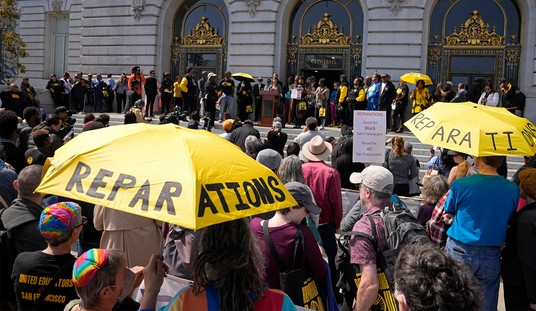One of the most bizarre aspects of being an American in Western Europe — at least if you’re an American who has opinions and is used to expressing them freely — is getting accustomed to the fact that there’s no First Amendment over here. Some of us grew up thinking of Western Europe as part of the “Free World.” But how free is a country if it doesn’t recognize freedom of speech as a fundamental right?
I’m old enough to remember the landmark case in the late 1970s when a group of Nazis wanted to hold a march in the largely Jewish Chicago suburb of Skokie. The story made headlines nationwide and sparked intense debate. The ACLU took the case; the Supreme Court ruled for the Nazis. But it was not a victory for Nazism — it was a victory for the Constitution. It affirmed that the First Amendment really means what it says, and that the United States really is the land of the free.
I grew up hearing many Americans speak of Western Europe as if its values were somehow superior to our own. After I began traveling to Europe and then — as a European resident — began traveling extensively around Europe, I came to love many things about the old continent. But not even in my most Europhile moments did I believe that it would be a good deal to trade in the Bill of Rights for its European equivalents.
In recent years, the superiority of America on this score has been affirmed again and again, as one Western European government after another has prosecuted individuals for saying or writing things that were deemed unacceptable. In a preponderance of cases, these prosecutions have been for statements about Islam. Some of the defendants — Oriana Fallaci, Brigitte Bardot — have been famous.
But no case has been more sensational — or more bizarre — than that of the Dutch politician Geert Wilders. The Dutch general elections on June 9 propelled the Freedom Party, which Wilders founded and heads, into a position of real government power. Yet even as he was beginning to flex his muscles, he was hauled into court for speaking his mind.
I’ve met and interviewed Wilders. I liked him. He was kind enough to write a blurb for my book Surrender. In person he is thoughtful and soft-spoken — nothing like the ranting demagogue that his detractors portray. On several occasions, moreover, I’ve expressed my admiration for his courage in the face of Muslim death threats, which oblige him to live behind several layers of armed protection.
I’ve also frequently defended Wilders against those who have routinely labeled him a fascist or extreme right-winger. Taking him at his word, I’ve described him as, essentially, a libertarian, a man whose antipathy for Islam is rooted in his love of individual liberty. In criticizing Islam, after all, he habitually cites the religion’s brutal subjugation of women and violent intolerance toward gay people as reasons to be concerned about the Islamization of Europe.
Of course, there have always been ways in which Wilders’s opinions and mine have deviated. For one thing, he has repeatedly proposed that the Koran be banned. In my view, the Netherlands would be better off if its government distributed copies of the Koran to every household in the nation. (Nothing would more quickly clear up everyone’s questions about what Islam is and isn’t. And the media would stop getting away with running preposterous articles claiming — to cite one recent example — that Islam is a “religion of love.”)
After the Dutch elections, moreover, I was disappointed to learn that Wilders had taken on as a personal assistant the reactionary Catholic writer Paul Belien, who is associated with the poisonous Vlaams Belang Party in Belgium and who has made clear not only his contempt for gays but also his distaste for liberal secular democracy. This hire seemed at odds with Wilders’s own oft-declared concern for the preservation of secular democracy and for the rights and well-being of gays.
Yet such disagreements and disappointments, needless to say, don’t diminish my outrage over the prosecution of Wilders. This trial wasn’t really about him or about Islam. It was about individual liberty. It was about fundamental rights that are enshrined in the First Amendment to the U.S. Constitution, but that in Western Europe are incredibly fragile — a fragility of which the “soft jihadists” haven taken full advantage.
The good news is that on Friday, the prosecutors in Wilders’s trial called for his acquittal. This was quite a turnaround, given that in their closing argument a few days ago they argued that because Wilders’s “views about Islam … are his opinions, not irrefutable facts,” he should be found guilty.
Nothing could make this American feel like more of an alien in Europe than the premise that a man deserves to go on trial, let alone go to prison, for expressing his opinion — whether about a religion or anything else. After all, the freedom to express “unacceptable” opinions — especially about religion — lay at the very heart of the Enlightenment and remains an unnegotiable cornerstone of American liberty.
In an apparent contradiction, the same Wilders who has called for banning the Koran has also argued forcefully that Europe is in desperate need of an equivalent of America’s First Amendment. You can agree or disagree with his opinions on other matters, but he’s certainly right on that one.









Join the conversation as a VIP Member